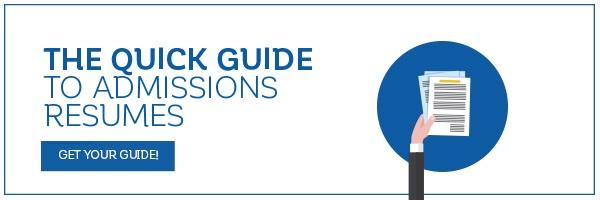Whether you’ve been a Pokémon devotee since childhood and downloaded Pokémon Go the very first day, or whether you wouldn’t know a Jigglypuff from a Charmander from your housecat, it’s hard to miss the fact that Pokémon Go is a phenomenon.
What does it have to do with admissions? There are actually some similarities and admissions lessons to be learned from PokémonGo.
• Some Pokémon are not that difficult to find, while others are vanishingly rare.
In the admissions process, you’ll find that your credentials make you a strong match at some schools, while some other schools are a reach. Conduct an honest assessment of your profile and see which programs you can match. Take into account your GPA and test scores, your work experience (if you’re applying to a program that requires work experience), your research (if you’re applying to a PhD), etc. Compare your profile with what the program is looking for, and with their admitted student data, if they make that information available. Be honest about your chances: is this school within your reach? Or is it one you’ll never catch?
• Some Pokémon require time/effort on the player’s part to hatch, develop or evolve. In the game, this means walking. (Which is good for you! You should do it!)
In the admissions process, developing as a candidate means taking stock of what you need to do to improve – and doing it. Maybe that means taking another course, or retaking a standardized test. Wherever you identify gaps or weaknesses, work on strengthening your skills – and you’ll evolve as an applicant.
In the admissions process, you’ll find that your credentials make you a strong match at some schools, while some other schools are a reach. Conduct an honest assessment of your profile and see which programs you can match. Take into account your GPA and test scores, your work experience (if you’re applying to a program that requires work experience), your research (if you’re applying to a PhD), etc. Compare your profile with what the program is looking for, and with their admitted student data, if they make that information available. Be honest about your chances: is this school within your reach? Or is it one you’ll never catch?
• Some Pokémon require time/effort on the player’s part to hatch, develop or evolve. In the game, this means walking. (Which is good for you! You should do it!)
In the admissions process, developing as a candidate means taking stock of what you need to do to improve – and doing it. Maybe that means taking another course, or retaking a standardized test. Wherever you identify gaps or weaknesses, work on strengthening your skills – and you’ll evolve as an applicant.
If you’re a re-applicant, you’ll need to make sure your application evolves from what it was last year: show how you’re a stronger candidate this time around. (This also means that you should not simply resubmit last year’s materials!)
For some grad school applicants – in fields from computers, to business, to medicine, to game studies – the app itself might lead you to fruitful areas of investigation. For instance:
• A children’s hospital in Michigan has been using the app as a way to get patients out of bed, and encouraging them to interact with each other (and with staff). If you’re going into the health sciences: how do you see the role of technology in improving patients’ quality of life? Does the use of this app in a hospital setting raise any questions for you?
• The app draws on a technology called Augmented Reality, which has numerous other potential applications.
• Game Studies is a growing interdisciplinary field, incorporating approaches from the social sciences and humanities along with technology.
• The Pokémon Go app was developed by a Berkeley Haas alum. Are you a budding entrepreneur or programmer with the next brilliant idea?
• The app draws on a technology called Augmented Reality, which has numerous other potential applications.
• Game Studies is a growing interdisciplinary field, incorporating approaches from the social sciences and humanities along with technology.
• The Pokémon Go app was developed by a Berkeley Haas alum. Are you a budding entrepreneur or programmer with the next brilliant idea?
Whether you’re collecting Pokémon or studying for the GRE – or studying for the GRE while you collect Pokémon – we wish you luck in your quest to be the best!
By Dr. Rebecca Blustein, an Accepted medical school admissions consultant. Dr. Rebecca Blustein, Accepted consultant since 2008, former Student Affairs Officer at UCLA’s Scholarship Resource Center, and author of the ebook, Financing Your Future: Winning Fellowships, Scholarships and Awards for Grad School. Dr. Blustein, who earned her Ph.D. at UCLA, assists our clients applying to MS, MA, and Ph.D. programs. She is happy to assist you with your grad school applications.
Related Resources:
This article originally appeared on blog.accepted.com.
Applying to medical school? The talented folks at Accepted have helped hundreds of applicants like you get accepted to their dream programs. Whether you are figuring out where apply, working on your AMCAS application, working on secondary essays, or prepping for your interviews, we are just a call (or click) away.
Contact us, and get matched up with the consultant who will help you get accepted!

